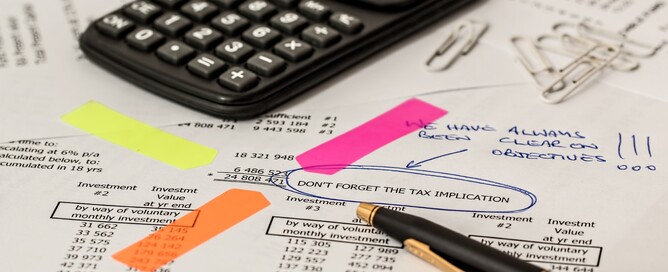We’re often asked what the difference is between a bookkeeper and an accountant? Here’s a primer…
Bookkeeping:
Let’s take a look at the dictionary definition: Bookkeeping is “the skill or occupation of maintaining accurate records of business transactions”.
The main responsibility of a bookkeeper is to accurately record financial data, ensuring that entries in and out of the company’s accounts are correct on a daily basis.
They record and calculate income and expenses, and undertake activities in support of this. For example, many bookkeepers raise invoices, deal with day to day transactions, and file VAT returns. They are also likely to process payroll on behalf of the business to ensure that tax and NI contributions are correctly calculated and reported to HMRC.
Bookkeepers have the skills and knowledge to explain financial information to business owners, and make clear the meaning of reports based on this information. They can also get involved with more detailed cashflow work to help managers make decisions based on accurate financial data.
Many businesses process the day to day work in-house, and engage a bookkeeper to check and supervise this work, carrying out the more in-depth bookkeeping processes on a weekly basis. This can be done on the company’s premises or remotely using secure, cloud-based software.
Accounting:
Let’s take a look at the dictionary definition: Accounting is “the skill or practice of maintaining and auditing accounts and preparing reports on the assets, liabilities, etc, of a business”.
Accountants are responsible for overseeing accounts, and producing statutory accounts and tax returns in compliance with the law. They must be strong on compliance, and maintain a good working knowledge of current legislation and ethical issues. Part of their role is interpreting data, and providing advice about financial decisions that will affect a business.
Accountants usually work with a variety of businesses, sometimes only meeting with a client once each year. This is often true of those working as part of a practice.
However, some accountants go down the management accounting route, where they are able to work from within an organisation, contributing to strategic decisions and having a large impact on business growth.
Bookkeeping versus Accounting:
While both deal with the finances of a business, bookkeeping is primarily concerned with accurately recording financial data on a routine basis, while accounting involves interpreting and reporting on that data.
Bookkeeping and accounting have considerable overlap because the first can be considered a part of the second. Bookkeepers lay the groundwork for accountants, providing data that is detailed and accurate, and essential to the performance of their role.
Qualifications:
You might be wondering what qualifications you would need to follow either of these career paths, and there are a variety of options.
Bookkeepers aren’t required by law to have any formal education, but the right qualifications can certainly help demonstrate expertise. The Association of Accounting Technicians (AAT) provides well-regarded bookkeeping qualifications. Choosing a bookkeeper who is a member of the Institute of Chartered Bookkeepers (ICB) is also a mark of expertise and experience.
Accountants need to prove their ability through qualifications. Those just embarking on their accounting education often begin with AAT courses. The Association of Certified Chartered Accountants (ACCA) courses, are internationally recognised qualifications that demonstrate knowledge and expertise in a wide range of areas including financial law and ethics. For those with an interest in management accounting, Chartered Institute of Management Accountants (CIMA) qualifications are a popular choice.
Cashtrak take their bookkeeping qualifications seriously. Carol is a Fellow at the ICB - Fellow is the highest grade of ICB membership, reserved for the best of the best and ICB bestows this honour on very few.
Important to Note:
Bookkeeping is a regulated profession following the revisions to the Money Laundering Regulations (MLR) in 2007 and again in 2017. If you are providing a bookkeeping service to clients, or are seen as carrying out bookkeeping 'by way of business' you must:
- be monitored by an HM Treasury appointed supervisory authority, such as ICB
- put in place certain controls to identify, prevent and report money laundering offences – known as anti-money laundering or AML
We have written a full article on this topic and it is on our website in PDF format – please do visit this link to read and download.
If you have any queries or would like any further information please do feel free to contact us on info@cashtrak.co.uk or call us on 01865 522 785.

